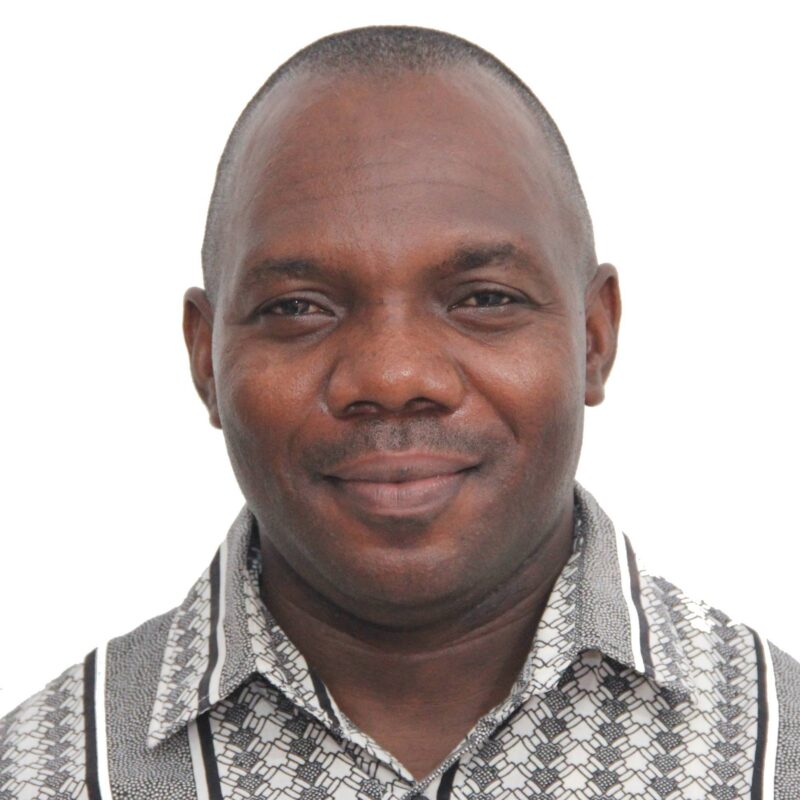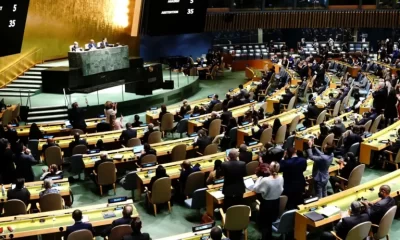Forgotten Dairies
How Hasty Generalizations Mislead Nigerians –By Matthew Ma
Hasty generalizations represent some of the most subtle yet detrimental fallacies that significantly shape public opinion and social behavior in Nigeria. When we make sweeping statements—such as claiming that all politicians are corrupt, all marriages are merely scams, all men are unfaithful, all Nigerian women are solely motivated by financial gain, or that all Tiv people are womanizers—we create a distorted perception of reality. These generalizations not only reinforce harmful stereotypes but also hinder the potential for meaningful progress within our society.

During my studies in philosophy in Zimbabwe, I had the privilege of enrolling in a course focused on logic and critical thinking. One of the central topics we examined was the fallacy of hasty generalization. Throughout the course, we explored this concept, examining how it arises when conclusions are drawn from insufficient or unrepresentative evidence. We analyzed various examples, discussed the implications of flawed reasoning, and learned how to identify and avoid this fallacy in both written and verbal arguments. This experience not only deepened my understanding of logical reasoning but also highlighted the importance of critical analysis in everyday conversations and decision-making. With this context, the question arises: What exactly is the fallacy of a hasty generalization?
The fallacy of hasty generalization is a prevalent logical blunder that frequently occurs in Nigeria, influencing the way people form conclusions and make decisions. This fallacy arises when an individual draws broad conclusions based on an insufficient or overly narrow set of evidence. Often, it happens when someone relies on just one or a few examples to make sweeping claims about a larger group or situation, without considering the broader context or the diversity of experiences within that group. For example, if an individual observes that two out of ten priests they have encountered are embroiled in scandals, they might prematurely conclude that all priests are inherently evil. This line of reasoning overlooks the considerable diversity and range of behavior within the priesthood, failing to account for other factors such as environment, training, or individual temperament. In essence, hasty generalization is often referred to as “jumping to conclusions,” where a sufficient body of evidence does not adequately support the conclusion drawn. Recently, a Nigerian woman shared the case involving UKMoni, his wife, and an alleged side chick on Facebook. What began as a simple birthday message quickly transformed into a heated topic among Benue’s social media in-laws. This woman claimed that the side chick took UKMoni’s wife to court after the wife publicly called her out for having an affair with her husband. The anonymous woman expressed her frustration over UKMoni’s mistreatment of his wife, and when the wife sought help, UKMoni allowed the side chick to take legal action. Without considering UKMoni’s side of the story, this woman hastily concluded that all marriages are inherently flawed, or even that the institution of marriage itself is a scam.
The question arises: why is her statement considered a fallacy? There are several reasons for this classification. First and foremost, the evidence she cites is excessively narrow. Relying on the negative marital experience of one woman, or even a small number of similar cases, fails to provide a comprehensive basis for concluding that all marriages are inherently flawed or fraudulent. This limited perspective overlooks the vast array of experiences that couples encounter and cannot be generalized to represent the institution of marriage as a whole. Second, her statement exemplifies the fallacy of generalization, as she applies her singular experience broadly to all marriages, disregarding the diverse realities and outcomes that many others experience in their relationships. Additionally, her claim ignores the substantial body of contrary evidence that exists. Millions of couples worldwide enjoy stable, loving, and fulfilling marriages, which stand in stark contrast to her assertion. This broad and positive spectrum of marital experiences cannot be dismissed based solely on a few negative anecdotes. Moreover, her statement makes an unwarranted leap from an individual’s bitter story to a sweeping universal claim about all marriages, thereby committing the fallacy of hasty generalization. In essence, the argument lacks the necessary breadth and fails to account for the diversity of experiences within the institution of marriage.
There are several cases of hasty fallacies Nigerians commit daily. The first compelling example of a hasty generalization can be observed within the sphere of education. Take, for instance, a Nigerian who, after navigating a series of formidable challenges and disappointments within the educational system, concludes that “school is a scam.” While this sentiment may stem from genuine frustrations and negative experiences, it overlooks the broader landscape of education and its diverse impacts on individuals and society as a whole. Education is foundational to personal growth and societal advancement; it equips individuals with vital skills, knowledge, and critical thinking abilities that pave the way for improved opportunities and a better quality of life. It is essential to recognize that many students encounter significant challenges, including inadequate resources, ineffective teaching methods, or personal circumstances that impede their learning experiences. However, these obstacles do not undermine the overall value of education.
In fact, countless students have excelled in their academic pursuits, gaining not only essential knowledge but also valuable life lessons that shape their character and career trajectories. Many have gone on to achieve fulfilling careers, contribute positively to their communities, and drive societal progress. The assertion that “school is a scam” dismisses the myriad positive experiences, achievements, and opportunities that education provides to a vast number of individuals in various contexts. Therefore, while it is entirely valid to discuss and critique the shortcomings of specific educational systems, it is equally essential to acknowledge the transformative power of education for countless individuals. Embracing this nuanced perspective allows us to appreciate education as a vital foundation for growth and development, rather than merely reducing it to an oversimplified and somewhat defeatist sentiment.
The third example of a fallacy of generalization can be vividly illustrated through the tribal and ethnic biases that are unfortunately prevalent in Nigeria. A particularly harmful stereotype that circulates among various groups is the blanket assertion that “all Igbos are thieves,” or that “all Tiv people are womanizers,” or even that “all Hausas are illiterates.” These sweeping generalizations overlook the vast diversity within each of these ethnic communities and disregard the individual identities and experiences of their members. Take, for instance, the Igbo community, recognized as one of Nigeria’s largest and most vibrant ethnic groups. This community comprises individuals from a diverse range of professions, including skilled artisans, entrepreneurs, respected academics, and dedicated public servants. The Igbos are often celebrated for their entrepreneurial spirit, and many within the community have established successful businesses that not only contribute to the local economy but also provide employment opportunities for others. Furthermore, there exists a substantial number of law-abiding Igbos who are characterized by their integrity, strong work ethic, and commitment to education. They often emphasize a dedication to learning and advancement, which starkly contrasts with the negative stereotypes that tend to dominate discussions about this group.
Similarly, the Hausa ethnic group exhibits an inherent diversity that reflects a wide range of educational backgrounds and career trajectories. Although some members of the Hausa community may face challenges in accessing educational resources—challenges that can be attributed to a combination of historical, socio-economic, and political factors—this does not mean that the group as a whole is uneducated. On the contrary, the Hausa community is home to numerous highly educated individuals who possess advanced degrees and occupy significant roles within various sectors, including government, business, education, and the arts. These individuals play a crucial role in shaping Nigeria’s national identity and actively participate in initiatives aimed at promoting development and social change within their communities. Therefore, spreading force narratives about these ethnic groups not only reinforces harmful stereotypes but also fails to acknowledge the unique identities, diverse experiences, and invaluable contributions of individuals within these communities. Such reductionist thinking promotes division and animosity, fostering conflict and misunderstanding rather than encouraging unity and collaboration. Moreover, this negative framing undermines the social fabric essential for harmonious coexistence in a multicultural society like Nigeria, where the richness of diverse backgrounds and traditions has the potential to enhance the nation’s cultural landscape. Recognizing the individuality and shared humanity among different groups will not only help to dismantle harmful stereotypes but also pave the way for a more unified and prosperous Nigeria.
Another prominent example of a fallacy of generalization is the pervasive issue of gender bias, particularly evident in the context of societal perceptions in Nigeria. This fallacy occurs when individuals make sweeping and often inaccurate statements based on limited or anecdotal evidence, leading to blanket assumptions about entire groups of people. For instance, claims such as “all men cheat” or “all Nigerian women love money” reflect this trend. These stereotypes frequently originate from personal experiences or isolated incidents, yet they are unjustly extrapolated to encompass entire populations, disregarding the complexities and variations inherent within those demographics. Such generalizations fail to account for the vast diversity of individual behaviors, motivations, and circumstances that exist among members of these groups. When we rely on these simplistic notions, we overlook the rich tapestry of human experience that defines individuals, reducing them to mere caricatures based on stereotypes. This not only misrepresents the truth but also fosters a culture of misunderstanding and prejudice. The danger of drawing hasty conclusions from a few examples is dangerous, as it can perpetuate harmful stereotypes and reinforce discriminatory beliefs that negatively impact the lives of many. These misguided perceptions can lead to social stigmas, discrimination, and inequality, ultimately hindering personal relationships and social cohesion. Therefore, we must strive for a more nuanced and informed understanding that recognizes and appreciates individual differences. Instead of relying on broad assumptions, we should engage in open dialogues and seek to understand the richness of personal experiences. By doing so, we can combat stereotypes and promote a more inclusive and equitable society that values and respects the unique contributions of each person.
Another pervasive fallacy frequently encountered in our political discourse is the hasty generalization that presumes all politicians are inherently corrupt. This line of reasoning often arises from the actions of a small number of dishonest leaders or public officials, whose unethical behavior is frequently highlighted in the media. From these isolated incidents, some individuals leap to the unfounded conclusion that every politician must be a thief or act solely out of self-interest, creating a generalized mistrust of political figures. This sweeping generalization ignores the complexities and individual circumstances that inform each politician’s behavior and decisions. In reality, the political landscape is far more diverse than the stereotype suggests, and the motivations driving elected officials can vary significantly. It is undeniable that some politicians engage in unethical practices, prioritizing personal gain over the public good; however, it is equally valid to recognize that many others enter politics with a genuine commitment to their constituents’ welfare. Countless public servants step into the political arena with the sincere intention of enacting meaningful change, advocating for the needs of their communities, and striving to work towards the greater good.
Labeling all politicians as corrupt not only does a grave disservice to those who diligently strive to uphold ethical standards but also perpetuates a damaging narrative. Such a narrative can erode public trust in government as a whole, fostering cynicism and disengagement among the populace. Such opinion overlooks the integrity, dedication, and hard work demonstrated by numerous individuals in the political sphere who genuinely strive to make a positive impact. Furthermore, painting an entire group with a broad brush based on the misdeeds of a few is not only inherently unjust but also undermines the essential democratic process, which relies on the active engagement and informed support of the citizenry. Therefore, it is crucial to remember that generalizations can obscure the truth and hinder meaningful dialogue about the many complexities surrounding political service and accountability. Engaging in nuanced discussions that acknowledge both the shortcomings and the commendable efforts of political figures is vital for fostering a more informed electorate and enhancing the overall health of our democracy.
The final disturbing fallacy in the discourse surrounding Nigeria’s security situation is the hasty generalization that all members of the Fulani ethnic group are bandits. This sweeping assumption arises from the actions of a small subset of individuals engaged in criminal behavior, specifically armed robbery, cattle rustling, and violent conflicts. However, such a broad characterization unfairly stigmatizes an entire community that includes millions of lawful and peace-loving individuals. This type of generalization not only fails to reflect the realities of the diverse Fulani population accurately but also risks fostering an atmosphere of fear and mistrust. As a result, this kind of rhetoric can exacerbate existing tensions between different ethnic groups and communities, fueling discrimination and hostility towards innocent members of the Fulani group who are not involved in criminal activities. Moreover, these misperceptions undermine the critical social cohesion necessary for peace and stability across the region. Thus, it is essential to recognize that the Fulani people, like any other ethnic group, comprise a diverse range of individuals with varying beliefs, professions, and lifestyles. Many Fulani contribute positively to society as farmers, traders, educators, and community leaders, striving to promote development and harmony within their communities. Addressing the multifaceted security issues in Nigeria requires a nuanced understanding of the underlying causes of conflict and a commitment to targeted strategies that focus on community engagement, capacity building, and conflict resolution. This approach is crucial for avoiding blanket statements that marginalize innocent populations and undermine the delicate relationships essential for fostering long-term peace and stability in Nigeria.
In conclusion, hasty generalizations represent some of the most subtle yet detrimental fallacies that significantly shape public opinion and social behavior in Nigeria. When we make sweeping statements—such as claiming that all politicians are corrupt, all marriages are merely scams, all men are unfaithful, all Nigerian women are solely motivated by financial gain, or that all Tiv people are womanizers—we create a distorted perception of reality. These generalizations not only reinforce harmful stereotypes but also hinder the potential for meaningful progress within our society. Nigeria flourishes due to its remarkable diversity, characterized by a rich tapestry of cultures, languages, and experiences. It is crucial to recognize that no single narrative can fully encapsulate the complexity of Nigerian life. Each region, community, and individual has a unique story and perspective that collectively shape the nation’s identity. To cultivate a society rooted in truth, fairness, and mutual respect, we must engage in thoughtful conversations that prioritize facts, evidence, and a broad spectrum of viewpoints, rather than relying on isolated anecdotes or biased assumptions. It is only when we consciously resist the urge to generalize hastily that Nigerians can foster an environment conducive to unity, justice, and a more vibrant democratic culture. Such efforts will empower individuals to develop a deeper understanding of one another, ultimately leading to a more inclusive and harmonious society.
Rev. Ma, S. J., is a Jesuit Catholic priest of the North West Africa Province of the Society of Jesus. He currently writes from Abuja, Nigeria.










